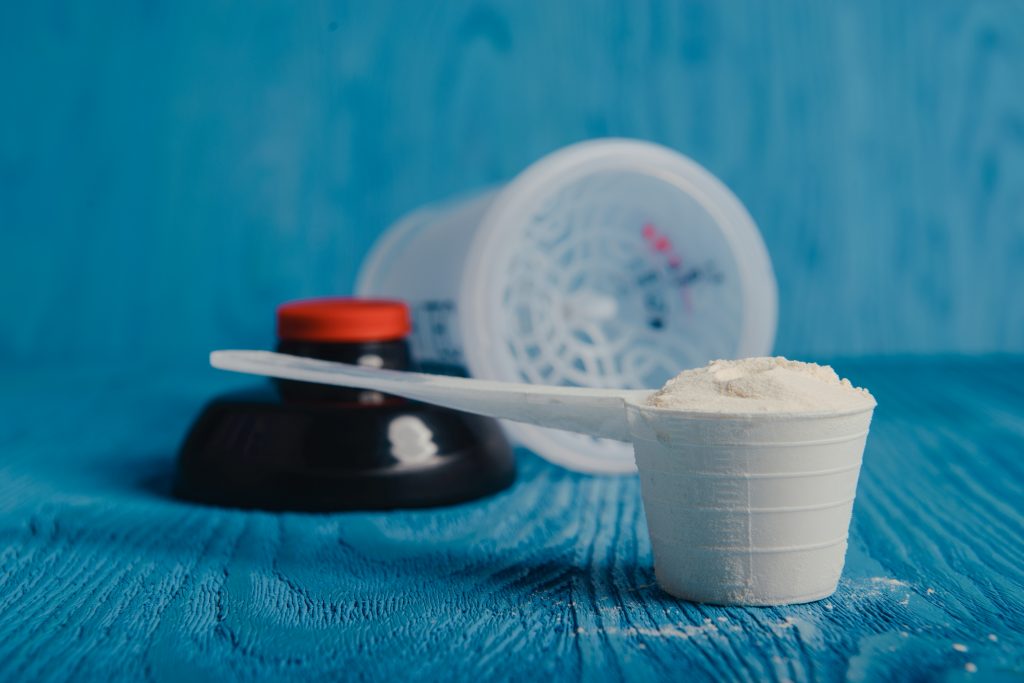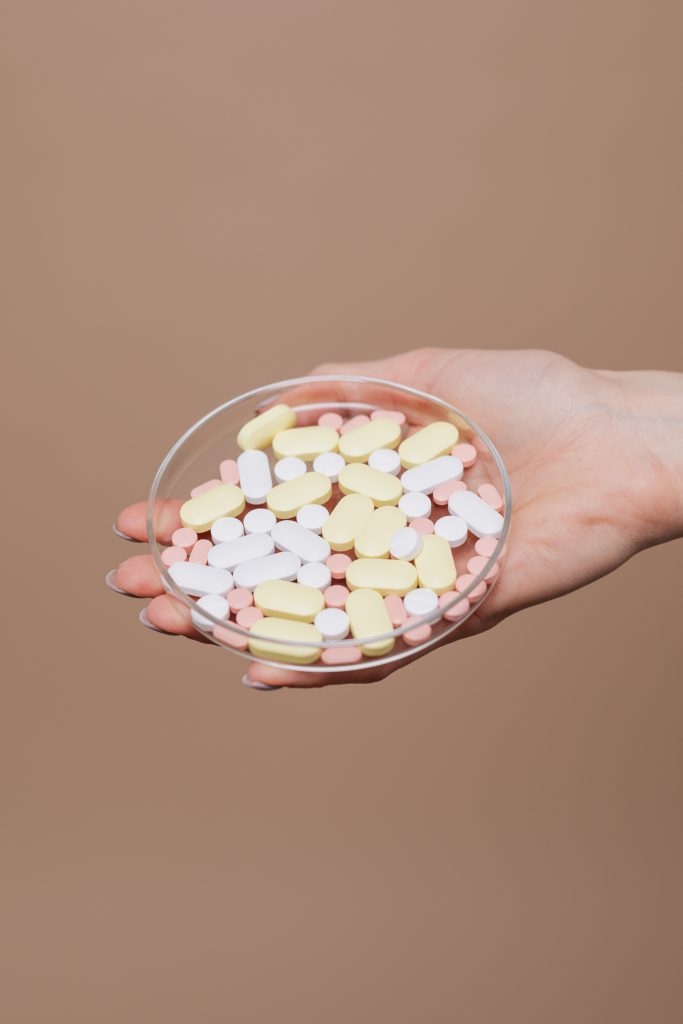
If you’ve been anywhere near a gym lately or searched fitness topics on instagram, you have likely heard of or seen promotions for pre or post workout supplements to boost your workout and weight loss results. Many of these supplements claim to help you lose more weight, burn more fat or grow more muscle as a result of taking them. You can pretty much find a different type of supplement for any goal you may have-”slim down”, “bulk up”, “run faster”, “lose weight”, “burn fat” and others are claims on supplement labels. Personal trainers and health coaches are often asked by their clients, “are supplements necessary?” or “Will they help?” We are going to dive into some basic information about supplements to help you break down whether they are a good option or could even help you with your workout and weight loss performance.
In general, pre-workout (or any workout type) supplements can be defined as any supplement that boosts workout performance. They can be taken in the form of a powder, pill or liquid form and most companies claim that they will help enhance your workout performance in the gym. There is a huge variance in ingredients based on company and from supplement to supplement, making it confusing for consumers who are trying to find a supplement to fit their personal workout or weight loss goals.

While the list of ingredients is too exhaustive to cover here, we can give you some of the main pre-workout ingredients used in common pre-workout supplements. The goal is generally to boost energy, focus, muscle gain, or even burn more calories to help you reach a weight loss goal sooner. Here are some of the main ingredients you might find in a pre-workout supplement:
Caffeine is a stimulant and often included in that morning cup of coffee. But some studies have shown that caffeine use can boost performance in the gym as well. In a 2012 study done by the Journal of Strength Conditioning and Resistance, men who took a caffeine drink containing 179 mg of caffeine as a pre-workout supplement 60 minutes before exercise could lift more weights at a higher resistance than those who took a placebo. However, according to Live Science, “too much caffeine can pose a health risk, and supplements can contain much more than is found in food or drinks. A person could guzzle gallons of coffee and not suffer from a true caffeine overdose. But even at much lower levels, caffeine can worsen underlying conditions such as a heart arrhythmia, leading to cardiac arrest”. In fact, some studies have shown that supplements containing caffeine sometimes contained more than 4 times the amount of caffeine contained in a normal cup of coffee.
Creatine Monohydrate (also known as just creatine) is a common pre-workout supplement used to increase muscle performance and energy production. It has been a supplement that shows some positive reviews based on limited studies. According to Live Science, some studies have shown that college football players taking creatine had fewer injuries and reported less cramping, achieved peak power performance and even increased some of their body mass. But they also report that creatine needs to be taken regularly to build up in a person’s system and actually be effective. It also only works well when someone REALLY pushes themselves in the gym and many people generally don’t push themselves to the peak level of performance for the creatine benefits to truly be seen. And since some side effects of creatine involve the “bulking up”, most people who are trying to accomplish weight loss and slimming their bodies down will not want the building or bulking effects of the creatine supplement. Healthline reports that weight gain, bloating, water retention and digestive issues can all be side effects of creatine supplementation, which definitely poses a challenge to those who have weight loss as their primary goal in working out.
Guarana is a plant from the Amazon that has been harvested by Brazilians for decades, but has also entered the American market and is generally used as an energy booster. According to Very Well Health, guarana is used to “fight fatigue, boost mental alertness, and promote weight loss. The fruit contains caffeine-rich seeds that have up to three times the amount of caffeine as coffee beans. The seeds are also rich in tannins and the stimulants theophylline and theobromine”. Since guarana contains caffeine, it is important to check any pre-workout supplement labels for the amounts of each ingredient included to make sure that the overall amount of caffeine you consume is not over the recommended usage. Some side effects noted from guarana usage can be agitation, stomach upset, headaches and other miscellaneous effects.
Branched Chain Amino Acids (BCAAs) consist of three different molecules-leucine, isoleucine and valine. These amino acids are also contained in many foods, mostly protein rich animal products. BCAAs are known for their aid in the muscle building process and many bodybuilding supplement programs include them as a component. However, they are more well absorbed when eaten in their whole food form. According to Healthline, use of BCAAs is generally safe, especially considering they are naturally occurring in many foods we already eat. But the benefit of supplementing them is currently mixed, it may be better to eat them in their natural form than buy an additional supplement to add to your weight loss routine.
Many supplement companies list a “proprietary blend” in part of their ingredient lists, which can be hard to understand. According to Self Magazine, “It’s important to realize that virtually every supplement and exercise nutrition brand out there has its own pre-workout formula, meaning that no two tubs contain the same—or even similar—ingredients. In fact, according to a 2019 study of the top 100 commercially available pre-workout supplements, nearly half of all ingredients were part of a ‘proprietary blend,’ meaning the amounts of each ingredient were not disclosed”. Each company can put together blends of their choosing without necessarily disclosing to consumers what those blends contain.

According to the Food and Drug Administration (FDA), “Federal law does not require dietary supplements to be proven safe to FDA’s satisfaction before they are marketed. For most claims made in the labeling of dietary supplements, the law does not require the manufacturer or seller to prove to FDA’s satisfaction that the claim is accurate or truthful before it appears on the product”. The FDA does require companies to report any side effects or results after market of their supplements as reported by consumers or in a lab. If enough reports or claims are made then a supplement can be taken off the market. But without clear guidelines or a ton of requirements placed on companies who make supplements regarding specific ingredients, it is definitely the job of the consumer to do the research and decide if the ingredients will be safe and beneficial for use in a diet or weight loss program. Although many times historically ingredients used in a product are generally safe for use, they may not be able to provide the results someone is looking for in a weight loss program.

You can find many other supplements used in pre- and post-workout supplement formulas, and we recommend doing your research before choosing to purchase them for your weight loss and training routine. Some can be beneficial for promoting energy and focus which can help you push through a hard workout. But a good old cup of coffee and a piece of fruit can also supply the energy and fuel to get you through, for a lot less money each month. Many times you will find the best weight loss results from sticking to the tried and true methods of eating a well balanced, healthy diet composed of many whole foods–lean meats, fresh fruits and vegetables, healthy whole grains and fiber rich foods. When incorporating these foods into your diet and weight loss regimen, you will start to see the results you want and your pocketbook will be thicker with all the money you saved from not purchasing every supplement advertised on your Instagram feed.
If you do find the desire or need to try supplementation, we recommend doing your research from third parties before buying and making sure that you follow dosage instructions and always take them safely under the company’s guidelines. Check us out on our website, or any of our social media pages for more advice on nutrition, weight loss, diet plans and healthy recipes.